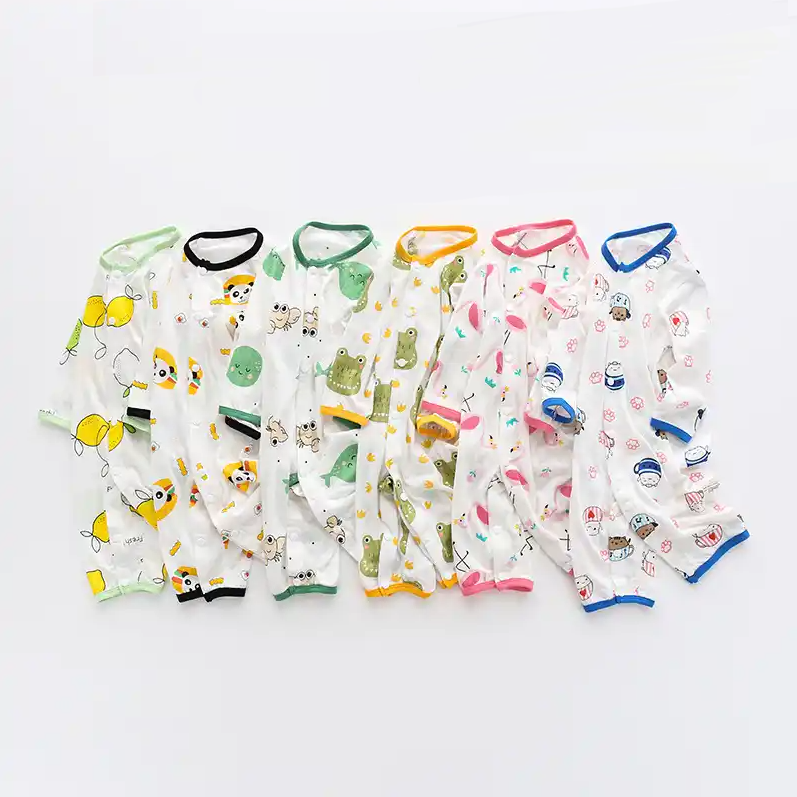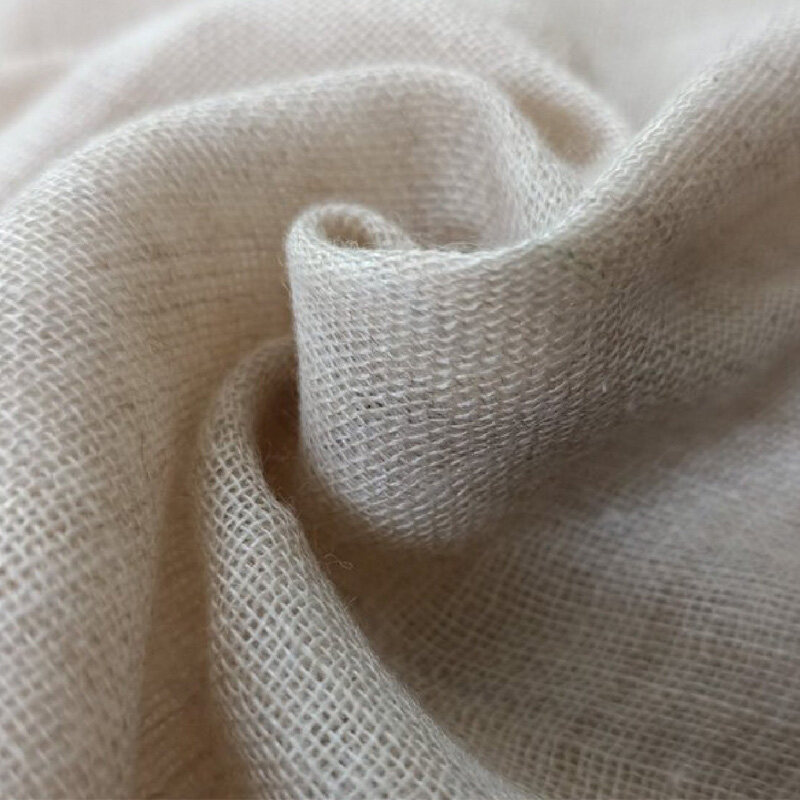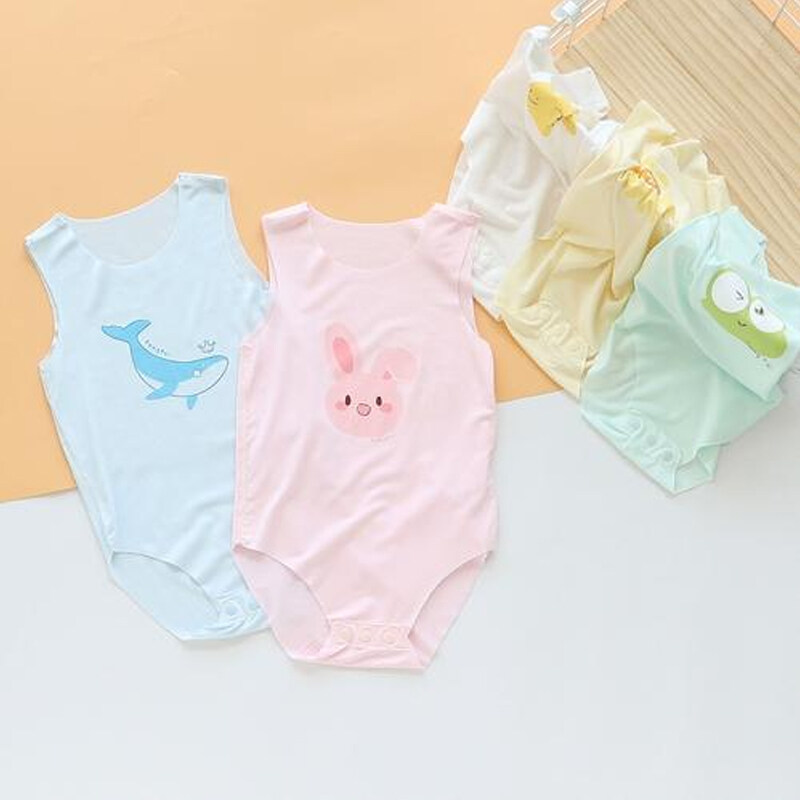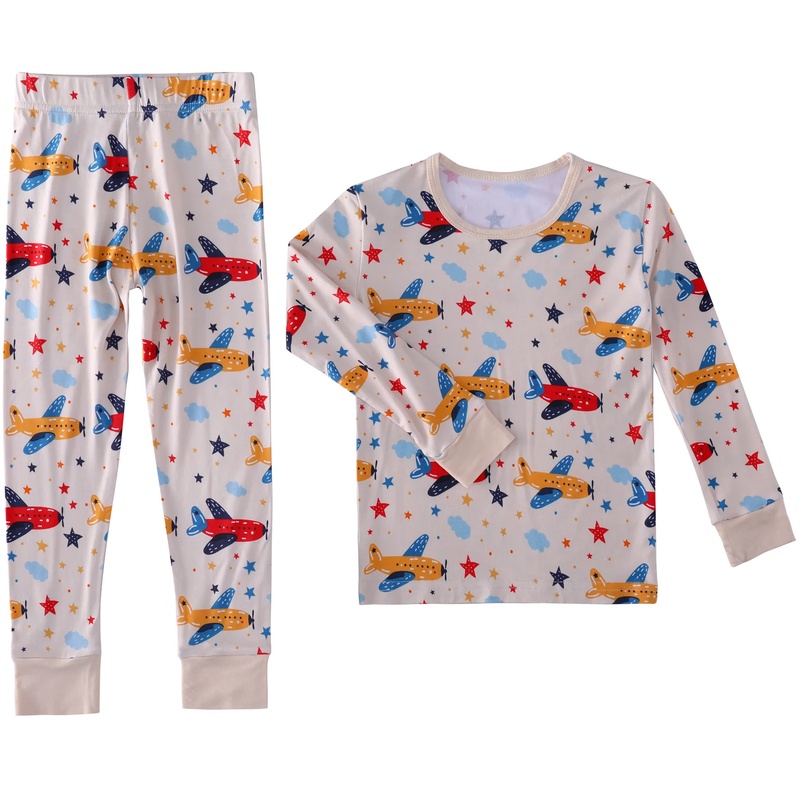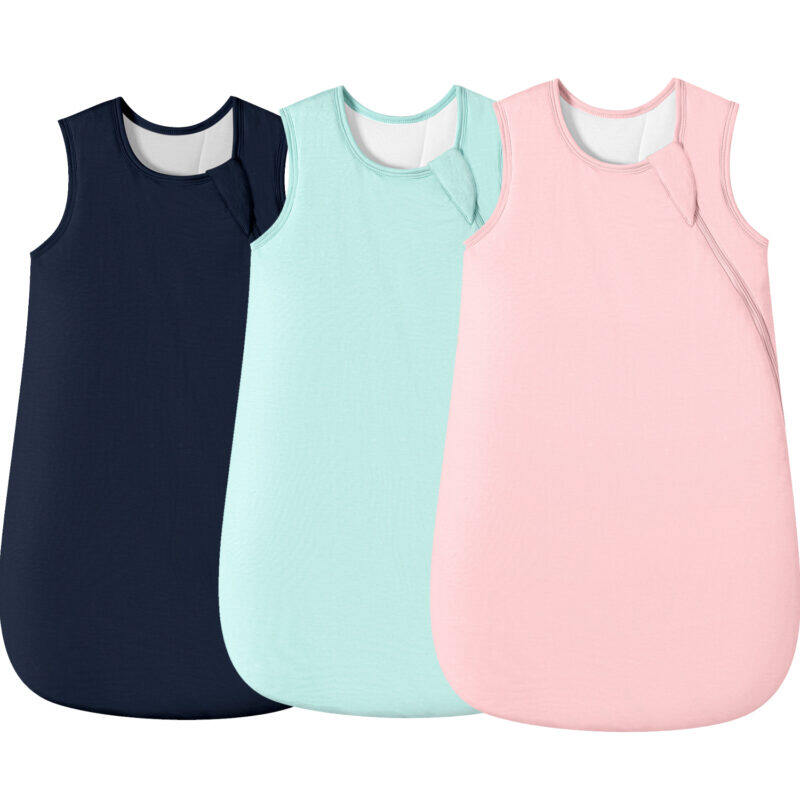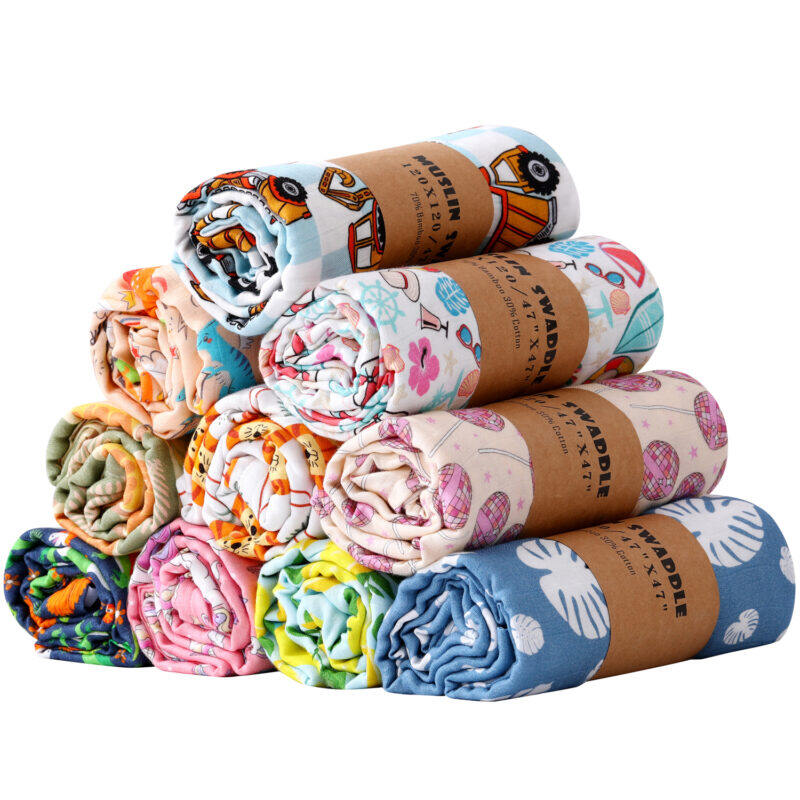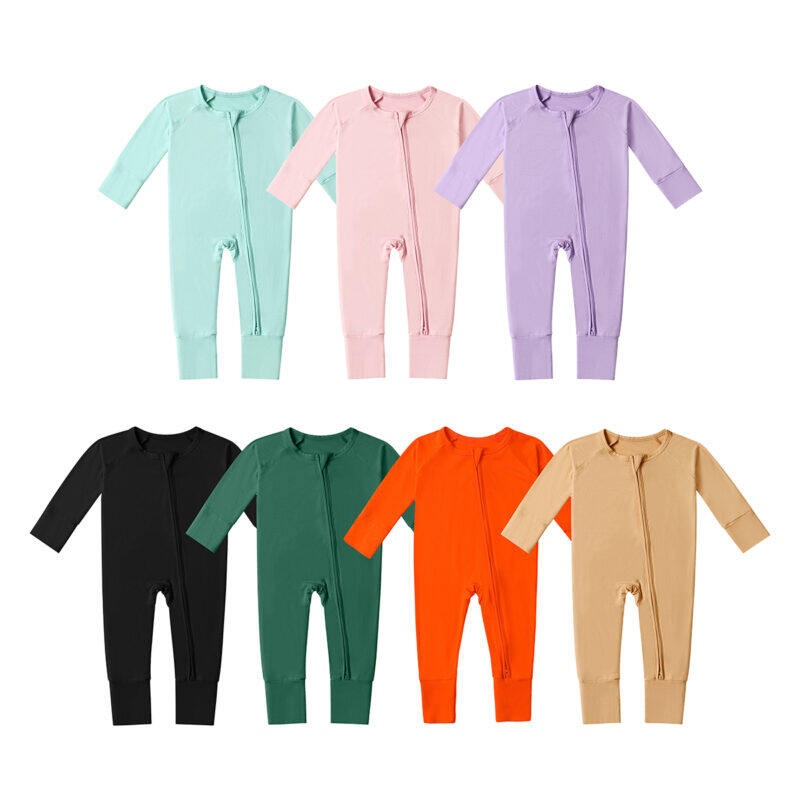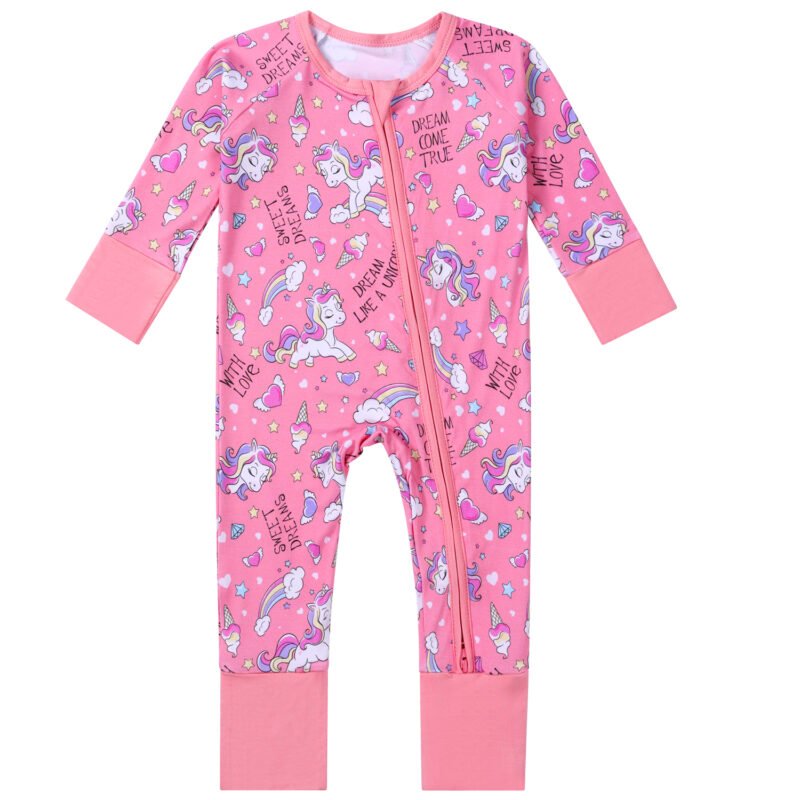Bamboo-Cotton vs. Pure Cotton: Are You Really Making the Right Choice
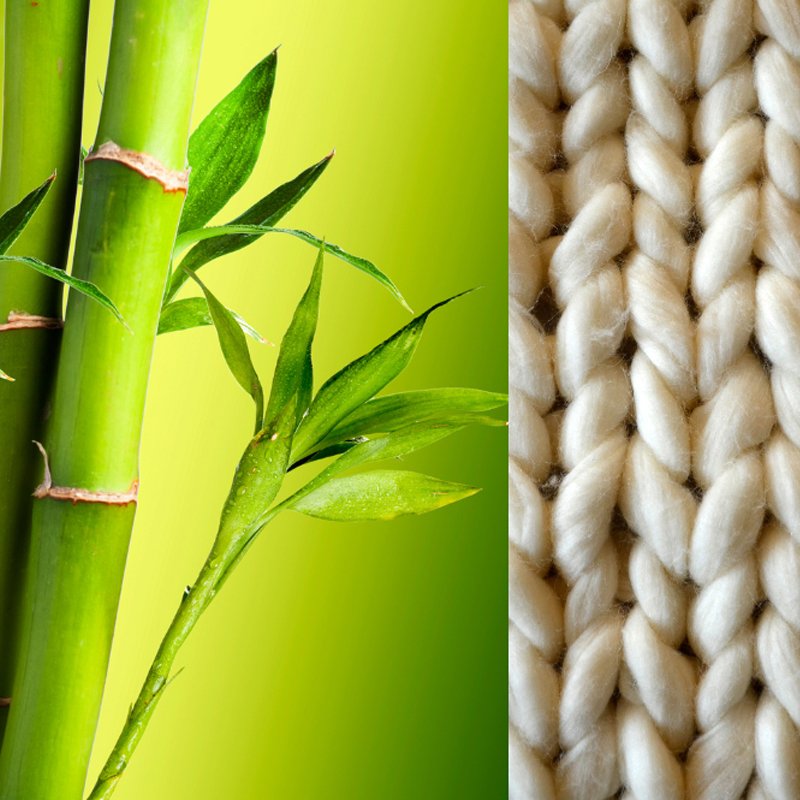
In this era of pursuing quality living, our choice of clothing no longer merely fulfills the basic needs of warmth and coverage. Instead, we increasingly seek comfort, health, and environmental friendliness. Among the many fabrics, bamboo-cotton and pure cotton are highly favored for their natural and skin-friendly properties. But faced with these two options, can you truly distinguish their differences? Today, let’s dive in and explore what sets bamboo-cotton and pure cotton apart!
I. Material Origin: How Do Nature’s Gifts Differ?
Imagine a lush bamboo forest and a vast cotton field—these distinct landscapes give birth to two very different fabrics: bamboo-cotton and pure cotton. Bamboo-cotton, as the name suggests, is a clever blend of bamboo fiber and cotton fiber. Bamboo fiber is derived from natural bamboo through high-tech extraction processes, retaining bamboo’s natural antibacterial and anti-mite properties. Cotton fiber, sourced from the cotton plant, is renowned for its softness and breathability. Pure cotton, on the other hand, is woven entirely from 100% cotton fiber, representing the epitome of a pure natural fabric.
Question: Do you know how bamboo fiber and cotton fiber differ in their microscopic structures? Share your thoughts in the comments!
II. Performance Comparison: Comfort vs. Health Protection
- Breathability: Pure cotton fabric, with its loose fiber structure, offers excellent breathability, making it suitable for year-round wear. Bamboo-cotton fabric, combining bamboo fiber’s porous structure, provides even superior breathability, delivering an especially cool and refreshing wearing experience during hot summer days.
- Moisture Absorption: Pure cotton is famous for its excellent moisture absorption, quickly soaking up and evaporating sweat to keep skin dry. Bamboo-cotton also boasts outstanding moisture-wicking capabilities. Thanks to bamboo fiber’s natural microporous structure, it regulates humidity more effectively, reducing bacterial growth.
- Antibacterial Properties: This is a major highlight of bamboo-cotton. Bamboo fiber contains a natural antibacterial substance called “bamboo kun,” which effectively inhibits the growth of bacteria and dust mites. This is especially beneficial for those with sensitive skin. While pure cotton does possess some antibacterial ability, it falls slightly short in comparison.
- Durability: Pure cotton fabric tends to shrink and deform after multiple washes. Bamboo-cotton, however, enhanced by the addition of bamboo fiber, offers greater resilience and wear resistance. It maintains its shape well even after prolonged use.
So, which matters more to you: breathability and moisture absorption, or antibacterial properties and durability? Tell us your choice in the comments!
III. Environmental Perspective: The Green Choice
In today’s increasingly eco-conscious world, the environmental impact of fabrics has become a key concern for consumers. Pure cotton, as a natural material, has relatively simple cultivation and processing, resulting in a smaller environmental footprint. Bamboo-cotton takes this a step further: bamboo grows rapidly, is highly renewable, and requires minimal pesticides or fertilizers during cultivation, making it even more eco-friendly. Additionally, the extraction process for bamboo fiber consumes less energy and produces fewer carbon emissions compared to traditional textile processes, making it the ideal choice for a green lifestyle.
Food for thought: While pursuing fashion and comfort, do you also consider the environmental impact of your fabrics?
IV. Application Scenarios: Perfect Matches for Different Needs
- Loungewear & Underwear: For close-to-skin garments, bamboo-cotton is the top choice for many due to its exceptional antibacterial properties and breathability. It minimizes friction against the skin and effectively inhibits bacterial growth, protecting intimate health.
- Summer Clothing: In the scorching summer heat, lightweight and breathable fabrics are essential. Bamboo-cotton, with its superior breathability and moisture absorption, is ideal for summer T-shirts and shorts, keeping you cool and comfortable even on the hottest days.
- Baby Products: Infant skin is delicate and demands high standards for fabrics. Bamboo-cotton, naturally antibacterial, soft, and skin-friendly, and easy to clean, is the perfect material for baby clothes and diapers.
- Outdoor Gear: For outdoor enthusiasts, fabric durability and quick-drying properties are crucial. Bamboo-cotton, with its wear resistance and quick-drying nature, is an excellent choice for hiking, camping, and other outdoor activities.
Interaction Time: What type of clothing do you prefer made from bamboo-cotton or pure cotton? Share your styling tips in the comments!
Conclusion: Choose What Suits You Best
After this in-depth analysis, it’s clear that bamboo-cotton and pure cotton each have their strengths; neither is definitively superior. The choice between them ultimately depends on your personal needs and preferences. If you prioritize ultimate breathability and antibacterial properties, bamboo-cotton is worth trying. If you cherish the softness and skin-friendliness of pure cotton, sticking with it is also a great choice. In this diverse era, let’s make the choices that best suit our lifestyles and needs.











